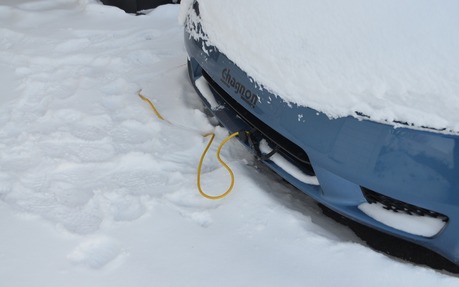Any Mechanism Is More Fragile In Winter
Any mechanism is more fragile in winter, and I'm not just talking about the human body, which finds the going tougher when the thermometer dips below freezing. I’m talking about the mechanisms in the family car. Think about a crankshaft, a set of pistons and assorted pumps beset with frigid cold that are expected to go from rest to 1,000 rpm in an instant – a rude awakening, indeed!
This is why your engine needs a motor oil adapted to Canadian winter conditions. It helps the moving parts warm up quickly by providing full lubrication. Engine coolant, too, has to be suited to our climate. Low fluid level or worn-out antifreeze can lead to engine damage.
When the temperatures are low enough to make the mercury shiver, the battery is doubtless one of the most severely stressed components in the engine-starting process. Even when the engine is running, the cold slows down the rate at which the battery is recharged. If your car battery is more than five years old, you would be well advised to have it checked before winter closes in.
While gas lines are better protected against the cold than they used to be, they can still freeze, particularly when temperatures fluctuate quickly, causing the formation of condensation that can freeze and block them.
As we all know, winter and exhaust systems are not on friendly terms. Things get worse when car use is limited to short trips and the system cannot reach the proper operating temperature. The result is condensation, which freezes and causes rust.
